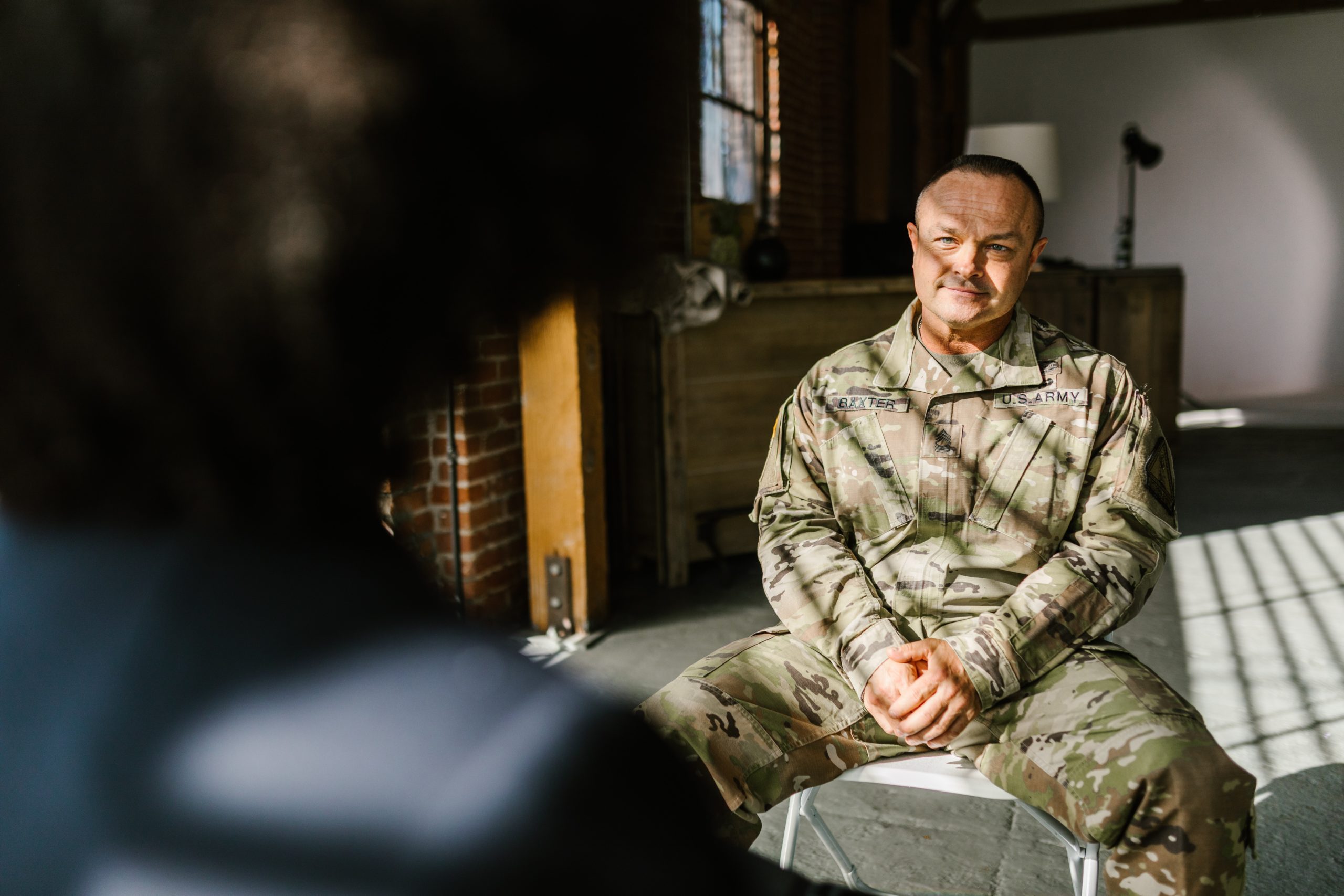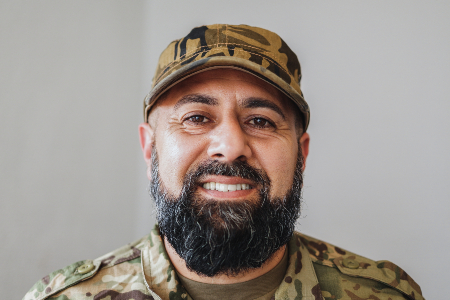PTSD Treatment for Veterans
PTSD in Veterans
Post-Traumatic Stress Disorder (PTSD) was established in the Diagnostic and Statistical Manual of Mental Disorders (DSM) in 1980 because of the effects the Vietnam War had on veterans.
Veterans are the largest population in the United States that suffer from PTSD. Those in the military are exposed to a vast amount of trauma while in active duty due to combat in war as well as physical and sexual abuse that can lead to PTSD.
Solara provides a safe, peaceful environment for veterans to process their PTSD with a licensed trauma therapist in San Diego. We accept TriCare and Veteran Health Administration insurance, giving us an unique opportunity to help veterans with their PTSD. Transportation, housing, and accommodations will be provided to the veteran as long as it is authorized.
About PTSD
People who suffer with PTSD tend to experience a variety of symptoms.
Avoidance symptoms include:
- Avoiding situations that trigger a memory about the traumatic event
- Avoiding thinking about the traumatic event or acknowledging that it happened
Arousal symptoms include:
- Self-destructive behaviors
- Heightened anger or irritability
- Being easily frightened and startled
- Insomnia
- Hyper-vigilance
Cognitive and mood symptoms include:
- Destructive thoughts about yourself or the world
- Feelings of guilt
- Loss of interest in activities you used to enjoy
- Memory loss
Intrusive memory symptoms include:
- Flashbacks
- Nightmares
- Constant thoughts about the traumatic event
- Physical and emotional reactions to triggers of the event
People with PTSD may have a hard time healing from the trauma they have experienced and it may begin to affect all areas of their lives. The emotional and physical pain can become debilitating.
PTSD does not appear in every person who goes through a traumatic experience or survives a dangerous situation. There are risk factors that make certain individuals more likely to develop PTSD.
Risk Factors for PTSD include:
- Surviving a dangerous or traumatic event
- Seeing someone else get hurt or killed
- Childhood trauma
- Getting hurt
- Having a history of substance abuse or mental illness
- Lacking social support after the traumatic event
- Adding more stress after the dangerous situation (i.e. losing a loved one, losing a job)
- Feelings of powerlessness, terror, extreme fear
Veterans may be more prone to PTSD because they are typically more exposed to situations where they will experience traumatic events. Veterans are more likely to develop PTSD after active duty when they have a greater exposure to combat, have discharged their weapon during war, saw someone gravely injured or pass away in front of them, and do not have the social support needed after deployment.
Therapies Used to Treat Veterans with PTSD
Talking with a therapist is essential for veterans to process the trauma experienced while in activity duty and relieve the PTSD symptoms.
The VA recommends the trauma-focused psychotherapies Cognitive Behavioral Therapy, Prolonged Exposure Therapy, and Eye Movement Desensitization and Reprocessing to treat veterans with PTSD. These psychotherapies use visualization, talking, thinking, or changing beliefs to help process the traumatic experience and memory.
Different kinds of therapies can be used as treatments for PTSD:
- Cognitive Behavioral Therapy (CBT) – CBT is a goal-oriented therapy that helps patients accept the things they cannot change and change the things that are in their control. CBT helps the veteran replace negative thought patterns with healthy and constructive thoughts.
- Prolonged Exposure Therapy (PE) – PE is a form of CBT that focuses on helping people face their fears by slowly introducing the patient to traumatic events with the help of a licensed trauma therapist.
- Eye Movement Desensitization and Reprocessing (EMDR) – EMDR is a therapeutic modality that helps patients reprocess their traumatic experience by using dialogue, memories and eye movements. This process helps veterans desensitize themselves from the trauma and the triggers to relive the memory of the trauma.
PTSD can be a long-term condition that can take significant time to heal from. Although people can make rapid improvements, continued treatment can be vital in resolving PTSD symptoms.
Transportation, Housing, & Accommodations for Vets
Solara Mental Health is able to provide transportation to and from its facilities in San Diego, Ca for most of the TriWest covered states.
Along with transportation, Solara can provide long-term housing at its beautiful Pacific Beach, San Diego residences that are close to the treatment center. These housing accommodations can be provided for both inpatient and outpatient treatment that may follow inpatient treatment.
Veterans may remain in housing for as many weeks or months as the VA insurance authorizes. We often find that the VA authorizes a considerable length of stay, allowing us the ability to provide quality treatment for the amount of time needed to heal and recover.
View our facilities in Pacific Beach to get a preview of what you might expect when choosing Solara Mental Health as your care provider.
Veteran PTSD Treatment in San Diego
Solara Mental Health offers help to veterans who struggle with PTSD. We provide a safe environment for the veteran to process their trauma with a therapist. We understand that the symptoms felt as a result of PTSD can be disruptive to everyday life and therefore strive to provide a peaceful environment with compassionate staff.
Solara recognizes that each veteran is unique and should be provided a customized treatment plan for their PTSD symptoms. The trauma-based therapies we provide will be catered to the veteran based on what our qualified trauma therapists decide is best for the veteran.
Solara Mental Health is VA contracted as a community care provider to best serve the veteran community and provide help with their mental health and PTSD needs.
For more information about Solara Mental Health’s PTSD treatment programs in San Diego or about other treatments offered at Solara Health, please contact us.





